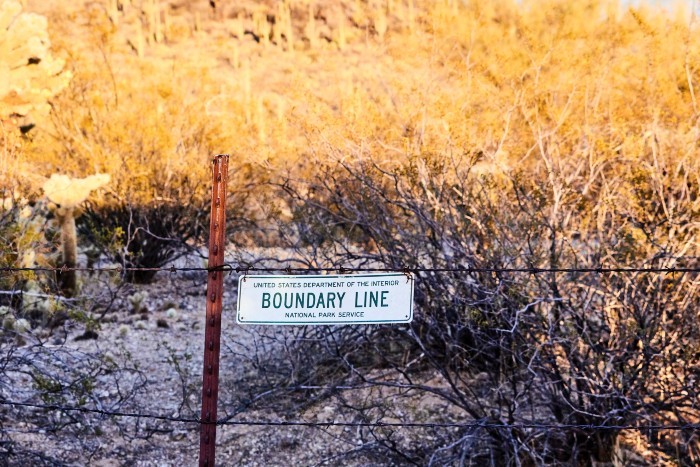Setting Boundaries Will Make You More Successful

This piece was originally published on The Leaderpath. Caterina Kostoula runs executive coaching, online courses, and books to grow your clarity and leadership.
Lately, I’ve found myself struggling more than usual with setting boundaries.
I said yes to a coffee with an old classmate even though I did not want to go. I did not tell my nanny that being late every day was not OK. I carried my 15-k.g. daughter for half an hour yesterday because she did not want anyone else.
Why do we find boundaries so hard?
When we set boundaries, we say no to the things we do not want to do. We also tell people what’s not OK for us. The most common reasons we fail to do this have more to do with us than with others:
- We care about what other people think. I was about to decline the request from my classmate when a friend said that he never refuses requests from alumni of the same promotion. That was his rule. His comment was enough to make me think that it would be rude of me to say no.
- We are afraid of the consequences. We often do not set boundaries with our boss or clients because we are afraid of what it will do to our career. We may not say no to our families because we do not want the nagging from our partner or the tantrums from our kids. I did not set boundaries with my nanny because I was afraid of how she would behave to my children if she got upset.
- We are afraid of harming our self-image. We want to be good people. Good employees. Good parents, partners, friends. Sometimes, saying no puts in danger our view of ourselves as good. Saying no to carrying my daughter would harm my self-image as an affectionate mother. I usually find that my coaching clients who struggle with boundaries at work are judgmental about the people who do set them. They consider them not as dedicated to their jobs. This judgment makes it difficult for them to set their own boundaries.
A lot of the struggle over boundaries comes from scripts we created during our childhood. If our parents were not good at setting boundaries or did not respect our boundaries, it will be harder for us to do so. Also, boundaries are linked with our self-worth. Are our needs important enough to respect them?
What are the consequences?
By not setting boundaries we fail to live a life true to ourselves and we live the one others expect from us. This is likely to be our biggest regret at the end of our lives according to hospice nurse Bronnie Ware.
More specifically, by not setting boundaries:
- We damage the very relationships we are trying to protect. Brene Brown found that people who did not set boundaries became resentful towards their relationships. They were also less compassionate. Robert Frost said: “Good fences make good neighbours.” Sacrificing ourselves for others does more harm than good to the relationship.
- We give up what matters to us. Our time and energy are finite. By failing to set boundaries, we may neglect our health, family, work, creative projects or anything else we care about. We follow someone else’s agenda and sacrifice our own in the process.
- We risk burnout. Poor boundaries either at work or in personal relationships can lead to burnout.
How can you become better at setting boundaries
- Be clear on what you want and what you do not want. Spend some time getting in touch with yourself and your needs. Meditation, journaling, and reflective conversations can help.
- Have rules to ease decisions. I like James Altucher’s rule about when to accept a request: only if it satisfies two out of the three criteria—it is paid, it is fun, or he will learn from it. Derek Sivers popularised the idea that if it is not a “hell yeah” it should be a no. I have rules on my calendar like family days or self-care days. What are your rules?
- Prepare your way out. If you are tempted to give in to a request you do not want, feel free to allow yourself some time before you respond. Say no. Mention that it is not personal. You can explain so it can go down better. But do not feel the need to overexplain. Everyone has the right to determine what they do and do not want to do. Here are some other ideas about how to say no politely.
- Have some structure around having difficult conversations. If I had established a regular feedback session with my nanny since the beginning, it would have been easier for me to set boundaries. Set some regular time to review what is working and what is not with the important people in your life. It is important to choose the discomfort of setting boundaries over the resentment you will feel if you don’t.
Call to action
Who do you struggle to set healthy boundaries with? What are some specific steps you can take to improve the situation? How do you think your life will be different once you’ve established healthy boundaries?
Warren Buffet said that “the difference between successful people and really successful people is that really successful people say no to almost everything.”
Saying no to the things you do not want will help you create the space for the things you do. Good luck.
This article was originally published on Thrive Global.
This piece was originally published on The Leaderpath. Caterina Kostoula runs executive coaching, online courses, and books to grow your clarity and leadership.


